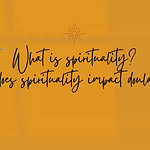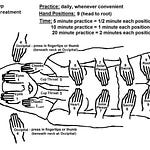Erin, Deputy Director of Abortion Care Network, is responsible for “connecting membership across the network of abortion providers, independent abortion clinics across the company and the folks that are making things happen on the ground” and talks with Sabia about what the overturning of Roe would mean for the Black community and independently run clinics across the country.
Where can I find them?
https://abortioncarenetwork.org/
https://keepourclinics.org/
Twitter: @AbortionCare
IG: @AbortionCareNetwork
IG: @KeepOurClinics
Mentioned in the Episode
Liberate Abortion: June 14-17 TX, LA, MS
SisterSong + Black Feminist Future DC takeover: June 18- 19 Juneteenth Weekend – For Black bodies, For Black power
Ineedana - How to find abortion clinics and support folks choosing abortion
Contact the Repro Legal Helpline to reach a free, confidential helpline where you can get information about your legal rights regarding self-managed abortion
Transcription
Transcription provided by Otter.ai, we apologize in advance for any errors
Sabia: Hello, hello, hello. I'm also like readjusting. Like, oh, it's Tuesday trying to get my selves together here. Mondays are my, like antisocial days. I'm like, Okay, here we are.
But how are you? Thank you for being here. I know right now, like we said, it's June, shit is crazy. Shit is wild. I'm trying to get crazy out of my mind. Some of my language, but she was wild. And so I'm grateful for you being here. Could you please introduce yourself? Oh, yeah.
Erin: My name is Erin Grant, I use they them pronouns. And I am the Deputy Director at abortion care network. Yeah, that's who I am.
Sabia: It sounds really important. What can you play? Deputy Director give me a little bit more information. What do you what do you do? Yeah, just pull that in for me.
Erin: Yeah, I feel like titles sometimes are so uncomfortable. But really what I see myself as, as I'm responsible for connecting our membership across the network across abortion providers. And really, our network is keenly focused on independent abortion clinics, who provide the majority of care across this country, ding, ding.
And, you know, their allies, the folks that are making things happen on the ground. So when people don't ask me to introduce myself with the title, normally, I say that I support community funded community run and community led clinics. And the folks that are meeting those patients, those advocates, and those allies through the political regulation and political volleyball, human rights.
Sabia: Sounds heavy, necessary. Exhausting. Me. So thank you for your work. First and foremost. My next question, just getting right into it. Because I've talked about this a little bit with my audience. But I would love to hear your feedback is what is the overturning of Roe specifically mean for black communities?
Erin: I just love this question. I love this question, mostly because I believe in the power and the resistance and the memory of black people, of indigenous people of brown people have persecuted folks and understanding the precarity of what is legal, what is illegal, what is a legal and, and knowing that our bodies have been considered those those entities like property. So when I think about what does roe mean to black people? It means two things. One, that there is somewhere a law that tells them that they have a right to do something. What laws mean to black folks is that criminalization is on the other side of what we're told that we're allowed to do, and so criminalization of pregnancy outcome, because that's what roe really stands to do is to kind of give a reason or reason not to criminalize abortion providers, abortion patients, people who support abortion, and people who have abortions, people who know about abortions. And so roe is a law that never really did enough around pregnancy outcomes, or really never addressed the Ongoing History and violation of dignity and human rights experienced by black and indigenous and brown people of color. So legality is really a matter of scope. And it's based on state it's based on zip code. It's based on identity. And so with Roe, we're all watching this law kind of crumble. And black folks have the opportunity to say this has never been enough. And whether the United States changes its legal view, the hierarchy of needs and rights to access are on the table. And the United States has been a dismal system of access for care and hasn't cared for our bodies and so we think you could do better. I think most I think the way that it impacts black folks is it gives us the opportunity to continue to say this ain't it and we believe that you can do better.
Sabia: yes, I'm here for all of that first of all, so much because like some of the things that I have definitely whether it's ROE or something else, right? I'm like black people are ready like wasn't that great? You know, like what you wasn't that great didn't really give me the same level of access didn't give me the same level of, you know, freedom or whatever, especially I practiced, you sat around, like, here's a law. On the other side of it. It's criminalization. Right? And that's like, the black experience for sure. So I guess, like, I would love to hear just like, maybe like more of your thoughts around, lift is like, so. Okay, I will kind of backtrack. So when we had the, you know, like, and I'm not like, for or against, like, the Women's March or whatever we had going on, right. But it's like one of those things where it's like, black people have been dealing with shit like this, right, we've been dealing with like inequities and like, ongoing, whatever. And we have been dealing with this, like, in America, especially like this Mirage, or, you know, dream of like, everything's fine and quality and whatever. And we know that that doesn't exist. But then it's like when things start to affect more privileged communities, they become like this whole big thing right now we're having marches we're doing this where funds are going here, funds are going there. But for the blacksmiths, even was talking about COVID, right, I remember when COVID came into the mixing, shutdown happened, you know, I remember, I won't say, this class, but to this class, this business class, and it mostly white people. And so when I was in that space, some of the white people were like, in a panic, they're like, oh, my gosh, like, I just don't know this, I just don't know that. And I was like, this is a regular experience of black communities, indigenous communities, brown communities. And so your panic is just like, it's not really giving, because this is a reality for people already people of color already. So I guess, like, my question to you is, I guess, like, what are your feelings about that, even in regards to Roe, where like we said, like, black people, people of color in general, have been dealing with, you know, not actually having enough security or safety or not having enough access or autonomy, or whatever it is. But now, it's such a big thing. And I'm like, is this a big thing for who? Right like, this changes? What for who? And like, you know, does that make sense?
Erin: Yeah. I think what you're talking about is the Yes, end of it. All. Right. So just because roe isn't enough, doesn't mean that I'm advocating for roe to fall. Yes, the reality is, is that most people don't even know who's providing their care. Like I said, independent clinics provide the majority of clinical care in this country.
And so most people are not able to kind of link everything together. And that's due to a level of interference, a level of urgency and a level of panic.
That doesn't allow us to kind of create a holistic story. So what I hear you saying is that, you know, that lived experience and accessing services, those stories should really be at the center of what we do next. And I always think that we have to honor the fact that there's people that remember what we've already experienced, so that we can continue to imagine something different. So roe is just like one dream of access. But there's other dreams of access dreams of fertility treatments, and dreams of children who are able to play in their neighborhoods, without relying on outsiders for quote, unquote, safety, the dream of infant formula, not having, you know, egregious contents, or shortages, the dream of having your kids, you know, go to schools that have nurses in air conditioning, and the dream of not having kids and of being like, you know, somebody's finance auntie, hello, somebody. So I think what you're asking is kind of the question that many communities are asking, which is, how, how did we get here? And what is the key or the ticket to finding something better? And I think it's the collective understanding that it's not just about abortion. It's not just about, you know, accessing this one service is about the dignity that a human being has and making decisions over their own body and whether we can allow our communities to support
Are people having access not only to health care, but having access to dignity?
So I think dignity looks different across communities and where people feel dignified is different.
Yeah, so I don't know if that really answers your question. I think, you know, there's a lot of places where roe will impact our overall stance. And we have to be able to kind of zoom out and see and see those things. Clearly, and it's not just black folks, right? It's like being educated about the fact that, you know, indigenous women have been some of the strongest advocates against sterilization and forced sterilization in this country.
Well, you know, Puerto Rican women, black women have, have been also allowed voices, we have to really name kind of some of the places that we see like child theft, and all of these things kind of swirling around our communities. And again, that question of dignity.
Sabia: Dignity is definitely going to be the word for me, I think a lot about that, because I think that is,
that's a big part of it. That is a huge part of it. And I like often think about,
just like experiences that I've had, as a black queer person in the medical space, is being like, yeah, when it wasn't great. It was a lack of dignity. Right? It was a lack of trust is a lack of like autonomy with the lack of respect, like all these things. I do have a question about independent providers and clinics, how do we best support them, because what I'm seeing now just like in my in my space is like, I see, like bigger organizations taking a stand publicly right now, right? Like we've, you know, we believe in abortion, and we're going to access this and we will provide money for that.
But even in my conversations with executives kind of in that space, they're like, we're also fearful of the legal ramifications of being a bigger organization and keeping so it's going to be a lot of, you know, postpone is going to be a lot of hushing a lot of like, we thought we're gonna be able to say this loudly. But we ain't gonna be able to do that as widely as we thought, right. And but I'm thinking about, like independent clinics and providers and knowing that they are doing most of the work and will continue to do most of the work, especially when it comes to actually talking and being open and being public and literally putting their lives on the line. Right. So what is the best ways for us to, to support to bring awareness to be a companion and that and that was efforts because just just visually seeing I'm like, they're gonna continue to do even more relied upon, they're going to need more resources, more of this, more of that. And so yeah, what can we do?
Erin: I love this question. Because one of the things that the pandemic has brought to us is the idea that being in your community, being focused within your state, your zip code, your neighborhood is actually like the first step to engaging in these, like longer human rights conversations in our country.
So the first thing I always tell everyone is, you know, abortion care network is here for you to help you figure out who are the clinics that are in our membership serves your state, especially if you're talking about like the South.
You know, there are some clinics that kind of stop and start services for abortion, depending on this on the landscape, and especially like clinics in Georgia, they're open and like I'm in Georgia, so right and so there's abortion providers are the abortion providers of that state. And so making sure that you know who's actually delivering the care and not who's promoting the care but who's actually caring for the community is always stepped on. So I tell people watching care network.org Just look it up. See if you have a member in your area. Clinics are fraught spaces. There is known white supremacist that patrol outside of the building, there is not protests at clinics, there is harassment. So there's deep stalking, kind of viewing and and pervasive surveillance of people going in and out of the building by people that are perpetuating harassment.
And so we invite you to think about with us, using like a toolkit that we have called abortion provider Appreciation Day, we give you ideas of ways to show appreciation to clinics that also won't mirror what harassers and folks that are working against the clinics that will send them a message of love, but also not, you know, tick off some of the boxes of things that clinic workers don't want to see.
Nationally, in this moment, you can join the liberate abortion campaign and do activations with folks in your state. You know, there's a lot of different marches and a lot of different groups and kind of like, right now clinics need to know that while they're in care, and their care is getting more and more complicated, more people are seeking them out as eights push others out, they need us in the streets saying that they're, they're there for a reason, and that we've got their back.
So you know, there's a couple of things that are coming up like Sister song and black feminist futures organizing a weekend in DC to take over June 18 2019, just a little bit after Juneteenth weekend,
you know, there's on 5pm of decision day, the band's off, which is also you know, in support of keep our clinics, which is how abortion care network supports members with its needs clinic members.
All of those are like political or activist ways to get involved, the most important thing is to know how to help somebody obtain an abortion and telling them the real information, misinformation is a huge part of making abortion out of reach for people. And so we really invite people to go to I need n a.org or.com, to do it in English, or in a spaniel, to locate the closest abortion provider and the abortion funds and patient support networks that are going to help them people have been having abortions, whether they've been regulated by the state or not abortion criminalization is, you know, something that came about in the late 1800s. And so if when Howe has a legal helpline for people who are choosing to self manage their abortion, or have questions about miscarriage or what's happening with their abortion, so, you know, to me, I just, I really think, you know, show up for clinics, be a public invisible voice for clinics, tell people accurately where they can get care, don't try to like, you know, hold them to like, what you just know that like, give them the tools I needed, I and then support your local abortion clinic, support your local abortion fund, follow, you know, the leadership of folks that you trust, as we move through this moment, because again, it's not just going to take that the anger, the disbelief and the grief, but it's also going to take a lot of imagination, to support our communities as we, as we meet this moment.
Erin: For sure, thank you so much, there's so much more I could definitely actually, but gonna respect your time. The last question I want to ask you is, through this, through all of this, being a person, just a person in the world, while also like constantly working on this, and my experience has been, it can be a lot right to be like working on something, but also really greatly impacted by something, and not always having that separation. And so my question to you is, how are you taking care of yourself? And like, is there anything that I could do we can do to make sure that those things are happening?
Sabia: Yeah, I mean, I think one of the things that most people who have passion will tell you is and share with everyone else is like, once you're passionate about something, or you know that you can give your your focus or time or energy to something.
The goal is not to be exhausted by it, but it's to keep at it. And so, I think that I've been finding a lot of hope, inside of the fact that there's younger people like us who understand exactly what time it is, and are connecting the dots of like Texas, doing this terrible abortion ban, spending its resources on border patrol, having a real issue with transgender family support kids, to going so far as to making drag shows illegal for minors. I mean, we're, we're, we're all witnessing these.
These movements happen, and it's gonna take us all. So it's like, I have this passion, I put my everything into it. And then when I take my time and I take my step back, I'm 100% not in control anymore. There's more than enough work. There's more than enough issues, there's more than enough people. And so really feeling that rhythm of like, you know, the ocean, beats the rock, to the sand, but it's after many repetitions, right? So I really cherish my time away my time off. I don't attempt to work when I'm not working.
And I don't act like I'm the, I'm the Savior. I'm not I'm not a savior. I'm not offering a silver bullet. It's going to take us all. And that means that I have to be, you know, willing to do my shift, but also willing to let go in and let others do their shift as well.
Sabia: Yes, well, thank you so much. I know you have to go. I appreciate you. And whatever you need us appreciate you, too. Yeah. And we will talk again, just because we're both cute.
Erin: Oh my gosh, saying that so much for having me. And, and you know, thank you for supporting abortion care network. This network of providers just, you know, shout out to all the people from you know, the South Mid East mid south, you know, the south with an F. We really appreciate it and we know that you know, who's caring for your communities. So, we're here, take care.
Sabia: Thank you. Talk to you soon.

















Community Funded, Community Run, and Community Led Clinics